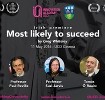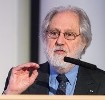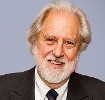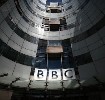To the barricades to back BBC, says peer
The chair of an inquiry into public service broadcasting says people should take to the streets if the government attempts to limit BBC independence.
Film producer and Labour peer Lord Puttnam says public service broadcasting is vital in a healthy democracy – and a robust and independent BBC is key to this.
He warns the public to be vigilant as the BBC charter discussions get underway over the coming year. Even an attempt by the government to install its own hand-picked board of directors to the corporation would seriously weaken its independence, added Puttnam, perhaps best known as the producer of Chariots of Fire.
He said: “If our public service broadcasting comes under threat, we should hold the biggest march that has ever occurred in London – to show the government we won’t tolerate this kind of interference.
“I’m serious about this. We have to get the general public to understand how vital it is that our broadcast media remain independent in this country. The government wouldn’t even have to dismantle the BBC altogether – even imposing its own directors should bring people out onto the streets. We must fight to protect what we have.” The peer is heading a probe set up to consider the nature, purpose and future of public service broadcasting, due to report in June. On 4 May a public discussion event will take place in Liverpool as part of this process. Film director Ken Loach and TV producer Phil Redmond are among the speakers who will debate whether television serves people living across all regions of the UK.
'Democratic future’
Puttnam believes independent broadcasting is vital at a time when newspapers are dominated by proprietors whose agendas are often reflected in their reporting.
He warned that countries where broadcasters are controlled and leaned on by governments – Hungary and Poland, for example – also see a weakening of politics.
He said: “Public service broadcasting and parliamentary plural democracy are completely intertwined. It is so vital that we can trust what we are hearing and reading. If all our media was in private hands then I honestly believe we wouldn’t have a secure democractic future.”
The inquiry is timely, since the government will soon begin discussions over the BBC’s charter renewal.
Meanwhile, culture secretary John Whittingdale told a parliamentary committee last week that he believes Channel 4 – a state-owned but commercially-funded station with a public service remit – could be better off in private hands.
Puttnam is also keen to maintain plurality within the media. He said: “If I asked someone in the north how they would feel if Rupert Murdoch, for example, controlled all their media, the likelihood is they probably wouldn’t feel too comfortable.
“Plurality of ownership is so important – we need to know our news is not coming from someone with their own agenda.”
Written by CIARA LEEMING
Source: Big Issue North







